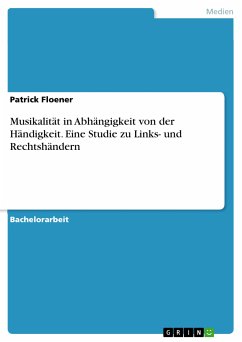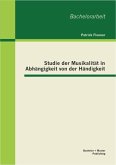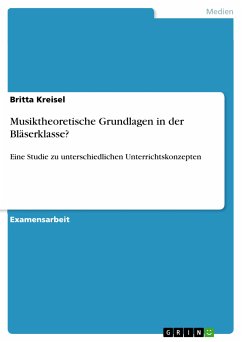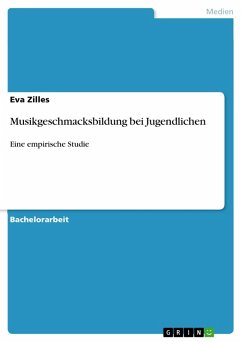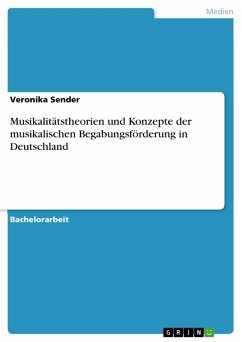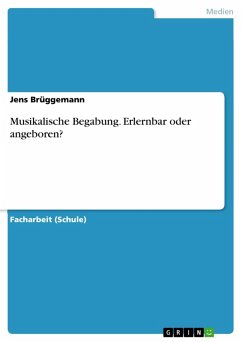Bachelorarbeit aus dem Jahr 2011 im Fachbereich Musik - Sonstiges, Note: upper second class honours, ( Middlesex University in London ), Veranstaltung: Untersuchung und Vergleich der musikalischen Fähigkeiten bei Links- und Rechtshändern, Sprache: Deutsch, Abstract: The current study determines possible relations between handedness, gender and musical aptitude especially focusing on examining a presumed relation between left-handedness and a superior musical aptitude. Eighty subjects consisting of forty left and forty right handers with in each group seventeen subjects with musical education and twenty-three subjects without musical education were tested with Gordon's Advanced Measures of Music Audiation and a handedness questionnaire. Out of eighty subjects, fifty-seven were male and twenty-three female. t-Test showed no relation between handedness and musical aptitude, there was no difference in musical aptitude between left handers and right handers. In addition, subjects with musical education, right handers with musical education and males with musical education were found to have a superior musical aptitude than their complement without musical education. No difference was found between left handers with and without musical education and women with and without musical education. Also, no difference was found between left handers with musical education and right handers with musical eduction, the same applies for left handers and right handers without musical education. Finally, no difference was found between men and women. For all tests the error margin was fixed to five percent.
Dieser Download kann aus rechtlichen Gründen nur mit Rechnungsadresse in A, B, BG, CY, CZ, D, DK, EW, E, FIN, F, GR, HR, H, IRL, I, LT, L, LR, M, NL, PL, P, R, S, SLO, SK ausgeliefert werden.

